Climate Change, Power and Politics

- Feb 11, 2019 modified: Jul, 10 2025
Climate Change, Power and Politics
Things are Getting Hotter
Australia's national electricity grid has once again buckled under the pressure of a scorching hot summer. Consumers are furious not only about blackouts but rising power bills, too. For decades, politicians have promised solutions they failed to deliver.
Energy policy has made political careers... But it has also destroyed them.
Energy Policy Inaction Sparks Business Uncertainty ABC Background Briefing
Climate Change
In early 2019, Townsville's dam gates were fully opened to release the overcapacity storage of water as a rainfall record over a seven day period created a flood emergency.
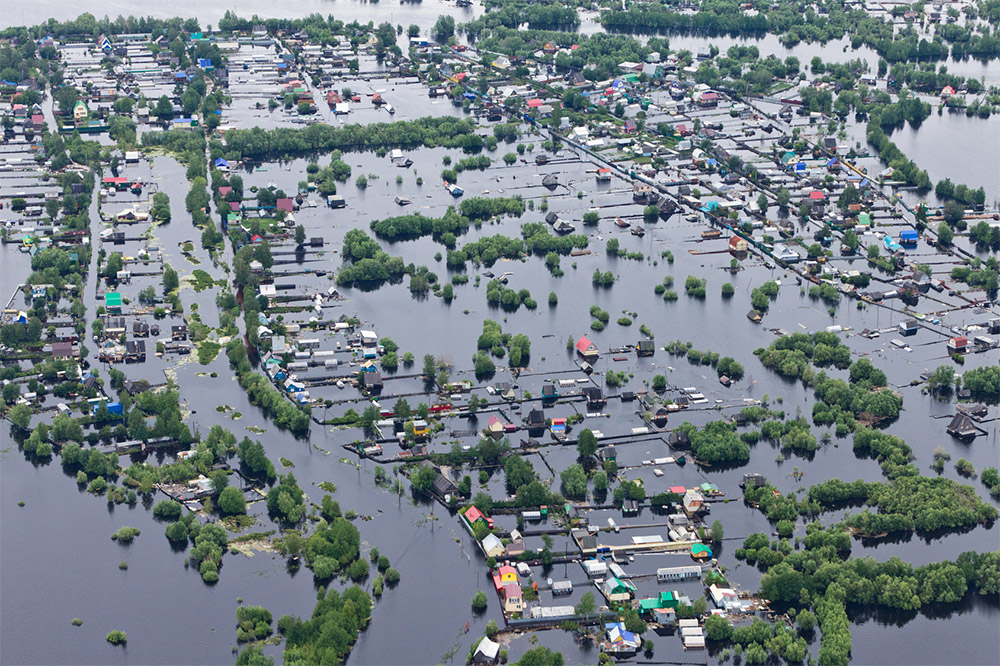
The floods followed Australia's hottest month on record, and came as dozens of bushfires raged across central Victoria, Western Australia, parts of Brisbane's south west and Tasmania.
(The New Daily. 3 February 2019)
The Bureau of Meteorology (10/01/19) confirmed that 2018 was the third warmest year on record, with the lowest rainfall since 2005 and nine of Australia's hottest years have occurred since 2005.
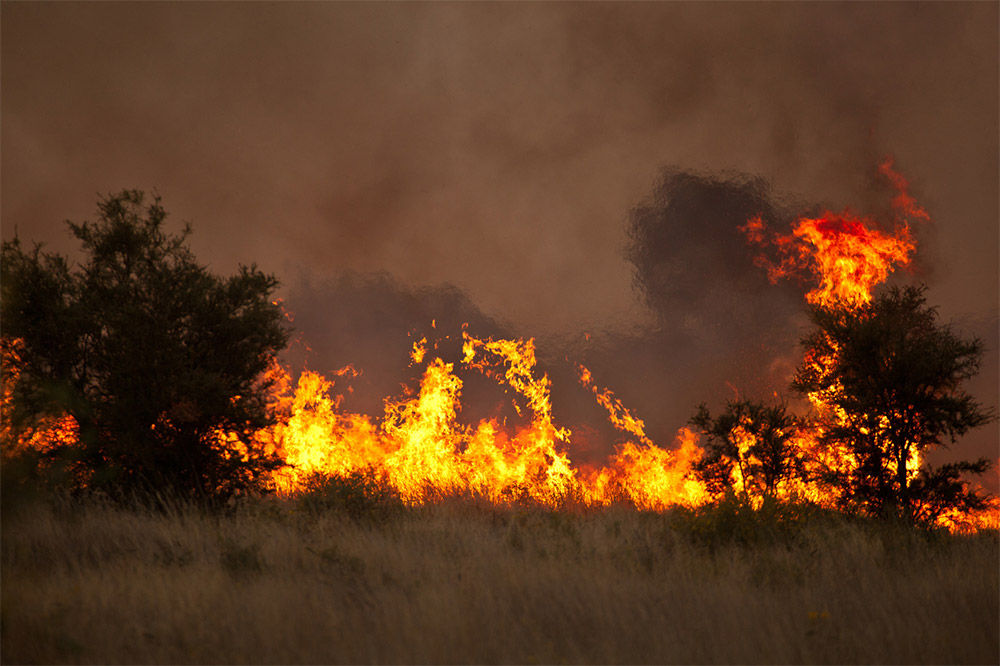
Climate Change denialists are looking increasingly foolish and reckless with our common future.
Power
'A third of our emissions come from power generation. So, to fix emissions, you have to fix the energy industry.
Meanwhile, ageing coal-fired power stations creep towards the end of their lives, threatening the reliability of our power, and pushing up power bills.
And the planet just keeps getting hotter and hotter.'
Prior to the Federal Election in 2007, Prime Minister John Howard made the following statements:
'Well I think we all accept and certainly I do that mankind has made a contribution to global warming. At the moment Kyoto doesn't effectively cover the United States and China, that's a bit like having an international world cup in cricket without Australia and India!'
Energy Policy Inaction Sparks Business Uncertainty ABC Background Briefing
Howard likened the most important and highly debated issue of our times to our non-participation in a cricket tournament.
He maintained that if other major Nations were not signing up to a world emissions agreement then why should Australia?
The answer might be as follows:
By signing onto the Kyoto protocol, Australia would be seen as an ethical and socially and environmentally responsible Nation. We could also move towards becoming one of the world leaders in controlling carbon emissions through the development of renewable energy technologies.
These actions would bring huge benefits in jobs and economic growth to Australia in new sustainable industries in addition to exporting our renewable technologies, skills and expertise. Ultimately this would also bring Australia's power costs down.
The push by Tony Abbott and News Ltd (backed by the Mining Council aka coal miners) was to convince the public that 'climate change' was a conspiracy or that the planet had always experienced climate change; so therefore, Nature was just going through its normal cycle. Abbott's factually unsupported suggestion that humans were not major contributors to climate change merely served to dumb down the climate change and energy debates.
If Abbott's warped logic is applied to bushfires, it would result in the following action (or inaction) - Nature has always caused bushfires, so unless we can prove that a bushfire in Australia is started accidentally or deliberately by humans, we should not put any resources into fighting these fires even if they potentially or actually cause the loss of lives, property and infrastructure. Bushfires that are started by lightening or natural causes should be left to burn themselves out as a part of a natural cycle.
A banal and dangerous attitude whether it is applied to bushfires or other climate change events!
Mr Abbott and [advisor] Ms Credlin, led the charge against climate change policy in opposition and in government, arguing that renewable energy was costly and caused the blackout in South Australia during a storm in 2016, and that Australia was such a small contributor to global climate change that our efforts to combat it would make no difference.
(Ben Potter. Existential Crisis. AFR 12-13 January 2019)
Politics
In politics there are lies, like 'the leader has my full support', and then there are great big fat lies, like 'the carbon tax will wipe out Whyalla'.
In election years, such as this one, the number of great big fat lies seems to increase dramatically. The lies aren't always easy to pick, usually because they're crafted around a grain of truth.
But when it comes to the Liberal and National parties, the easiest way to know if one of their politicians is not being completely honest is if they claim something is a new 'tax'.
[The LNP] has bought the line from former prime minister Tony Abbott that anything labelled a tax - even if it obviously isn't one - will pinch the voters' hip pocket nerve and turn them away from Labor.
We know this was Mr Abbott's strategy with the Gillard Government's 'carbon tax' because that's what his former chief of staff and political strategist, Peta Credlin, divulged in 2017.
Ms Credlin exposed the great lie of the 2013 election when she explained to her Sky News colleagues that, 'It wasn't a carbon tax, as you know. It was many other things in nomenclature terms.'
'We made it a fight about the hip pocket and not about the environment. That was brutal retail politics and it took Abbott about six months to cut through.'
'And when he cut through, Gillard was gone.'
(Paula Mathewson. The New Daily. February 2019)
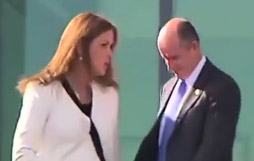
The Abbott and Credlin anti-climate change campaign has put us years behind in lowering power prices owing to the lack of implementation of emissions trading schemes and the development of renewables. However, even Abbott, Credlin, billionaire coal miners and News Ltd can no longer stop the momentum towards renewable alternatives to coal-fired power stations.
Why Prices have Risen
A variety of different factors have contributed to price rises. Some of these include:
- A lack of national energy policy beyond 2020. This means that business does not have the necessary certainty to invest in the new infrastructure needed to replace the old power plants which are retiring.
- Rising network costs were a big factor in price rises from 2007-2014, but have since fallen.
- Increased charges by energy retailers for winning and billing customers.
- The export of gas reducing the amount of gas available for local companies, which makes it more expensive. In some cases this means Australian gas is cheaper to buy in Japan than it is back home.
- The retirement of large old coal-fired power stations with not enough new power generation to replace them.
- Game playing by power plant operators in the wholesale electricity market and not enough competition to help reduce prices.
- Complicated consumer information which makes it hard for people to easily understand the options they have available and make smart choices to reduce their bills.
Electricity Costs
While domestic power bills have risen substantially across Australia over the last decade, there is relief in sight with prices expected to fall by an average of 6.2 per cent over the 2018-19 and 2019-20 financial years.
Simply put, we pay for four main things in our electricity bills - the generation of electricity, the poles and wires to get the electricity to homes and business, electricity company administration and marketing costs, and environmental costs.
Latest Annual Energy Bill predictions
| State | 2024 Avg. Annual Bill (AUD) | 2025 Avg. Annual Bill (AUD) | 2025 Avg. Cost per kWh (cents) | Estimated % Increase |
|---|---|---|---|---|
| New South Wales | $1,685 | $1,830 | 32.51 | 8.6% |
| Victoria | $1,338 | $1,421 | na | 6.2% |
| Queensland | $1,947 | $2,019 | na | 3.7% |
| South Australia | $2,177 | $2,247 | na | 3.2% |
| Australian Capital Territory | $2,245 | $2,436 | na | 8.5% |
| Tasmania | $1,800 | na | na | na |
| Western Australia | $1,992 | na | na | na |
| Northern Territory | $1,800 | na | na | na |
- New South Wales (NSW): Residents are expected to see an average annual bill increase of $145, reaching $1,830 in 2025, with an average cost of 32.51 cents per kWh.
- Victoria: An estimated 6.2% rise in electricity bills is anticipated, bringing the average annual cost to $1,421.
- Queensland: Households may experience a 3.7% increase in electricity bills, averaging $2,019 annually.
- South Australia: A modest 3.2% rise is projected, with average annual bills reaching $2,247.
- Australian Capital Territory (ACT): Residents could see an 8.5% increase in electricity bills, averaging $2,436 annually.
![]() Tasmania, Western Australia, and the Northern Territory predictions for 2025 are unavailable.
Tasmania, Western Australia, and the Northern Territory predictions for 2025 are unavailable.
source: ChatGPT June 2025
Wholesale Power
The cost of actually generating energy - whether from renewable energy, coal or gas - is almost a quarter of the cost of the average bill. This is known as the wholesale electricity price.
The wholesale price of power has risen in recent years due to a couple of factors. First, the rising cost of producing power from gas and secondly, the closure of several old and inefficient coal power plants in South Australia and Victoria.
As not enough has been invested in new power generation over the last decade, increased strain is being felt across the entire electricity network. With less electricity supply in the market after the closure of the coal plants, this pushed prices higher.
Poles and Wires
Australia has one of the longest electricity networks in the world. The cost of the poles and wires that carry the electricity from power plants to our homes and businesses is passed through to us in our power bills.
Keeping our poles and wires well maintained and building new parts of the electricity network is not cheap. These costs can make up as much as half of our power bills.
Environmental costs
This is the smallest component of the average bill. It includes the cost of meeting the national Renewable Energy Target, as well as the ongoing costs of rooftop solar power support schemes. The cost varies from state to state. According to a 2017 inquiry into power prices by the Australian Competition and Consumer Commission, the cost of environment schemes makes up about 7 per cent of the average bill.
Administration and Marketing Costs
This part of our bill covers the cost of electricity companies maintaining customer databases and billing processes at electricity retail companies, as well as marketing to win new customers. The 2017 ACCC study revealed that electricity company marketing and administration costs accounted for about a quarter of the average residential electricity bill.
Reducing Electricity Costs
For now at least, it's up to consumers to make sure they're not being ripped off.
The first and most important thing to do is regularly compare energy plans in your area. That's because prices fluctuate constantly, contracts expire and new retailers enter the market regularly.
If you've never compared, or it has been over a year since you did, there's a very good chance that simply switching to cheaper energy could save you hundreds over the year.
There are hundreds of dollars between the most and least expensive plans on the market and with Electricity & Gas you can compare energy plans in minutes and get cheaper power today.
If you're looking to cut your power usage, the most important thing to do is get out of the house, especially if you work from home.
During the summer months, you're probably going to use a whole lot more power as you run the air-conditioning to stop you from sweating it out at home.
So schedule your weekly shopping for the hottest day of the week and spend the warmest hours inside some cool, air-conditioned shops, or work from the local library instead of working from home.
https://electricityandgas.com.au
Renewable Energy Scorecard
Opponents of the Renewable Energy Target often claim that the target is forcing up the price of power. However, analysis from energy market experts ROAM Consulting found that Australian households would pay over half a billion dollars more for power in 2020 without the Renewable Energy Target in place, and up to $1.4 billion more per year beyond that.
Queensland is on target to achieve net zero carbon emissions by 2050. Currently Queensland has the highest proportion of solar households in Australia.
Western Australia is the only State with no renewable energy target or net zero emissions target. See how the rest of Australia is scoring: Renewable Energy Scoreboard
Electricians - Brisbane, Gold Coast, South-East Queensland
Local qualified electricians can also assist you with a reduction in power costs; for example, by installing energy efficient LED lighting in your home and business premises.
Weiss Electrical Brisbane is a friendly, reliable and affordable Brisbane electrical company who can assist you with lowering electricity costs. They have been servicing residential, commercial and industrial customers for over 25 years.
JT Electrical services Brisbane, Gold Coast, Ipswich, Jimboomba & Beaudesert and offer free advice on their website, 'Optimising your air conditioner's efficiency' and What is the greenhouse effect? Member # A0970834 of the Clean Energy Council.
Mining Jobs
According to census data, 49,997 people in Queensland work in the mining sector, about 2.3% of the state's workforce, or about one in 47 jobs.
However there are many indirect jobs for example Brisbane based company RLM distributing produces Mining Equipment and Mining Tools.
The Indian miner Adani has long claimed that the Carmichael coalmine will create 10,000 jobs, despite its experts telling a court the number was 1,464.
Coal for electricity generation the primary culprit for rising world emissions 2018.
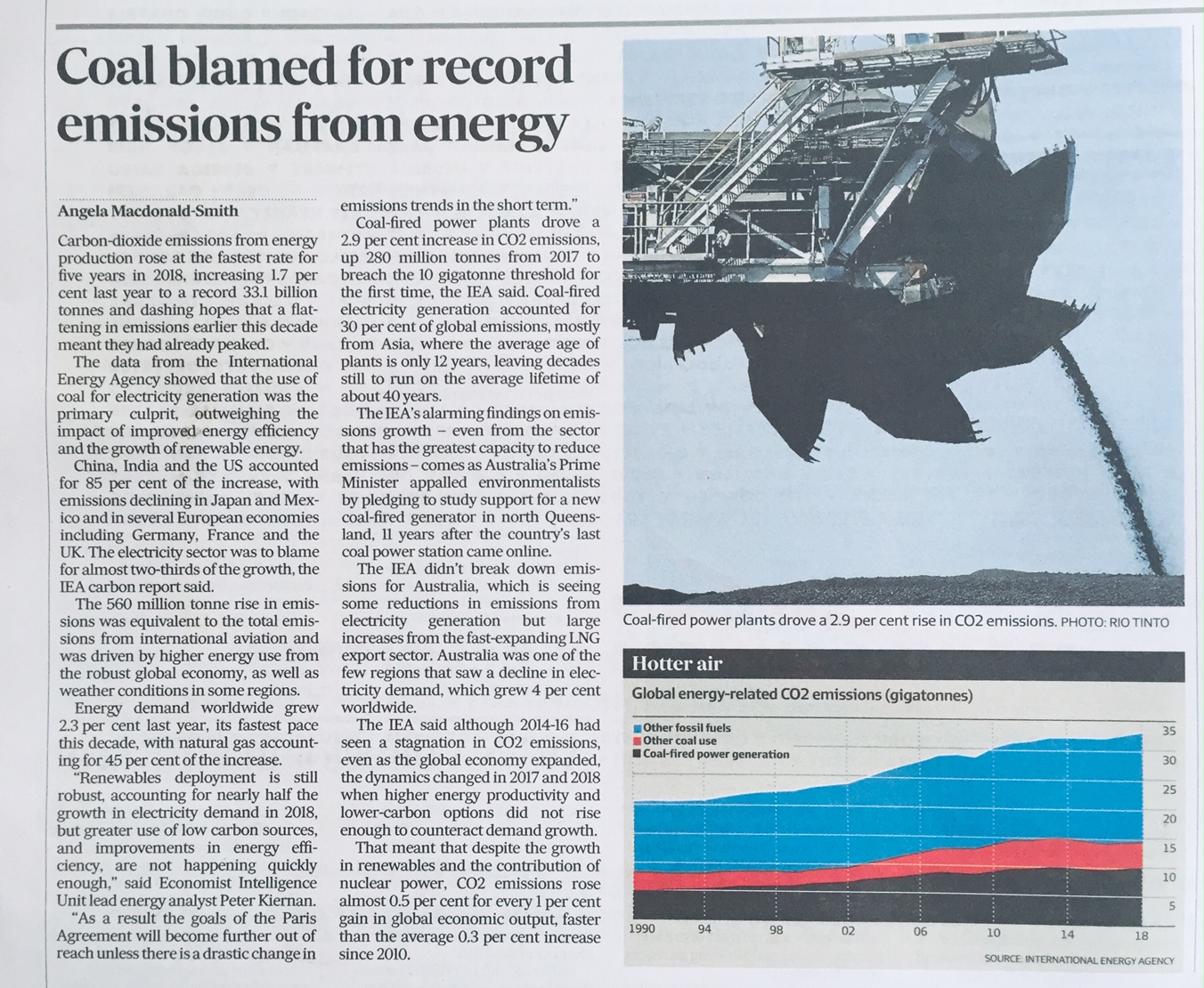
China, India and the US accounted for 85% of the increase, with emissions declining in Japan and Mexico and in several European economies including Germany, France and the UK.
2025 National Press Club address
On Wednesday 9th July John Grimes, Chief Executive of the Smart Energy Council, addressed the National Press Club on "Power politics".
The rant by Smart Energy Council Chief Executive John Grimes took aim at Australians, who he claims simply "tear each other apart", while applauding the Chinese Communist Party’s approach to energy.
Some interesting facts were revealed-:
Rooftop solar in United States is 3 times more expensive than Australia.
91% of the Intellectual Property (IP) of solar panels was developed in Australia.
41% of Australia's energy comes from renewable sources.
40% of China's energy comes from renewable sources.
A solar panel generates 4 times more in Australia than the same panel in Germany due to our unique weather conditions.
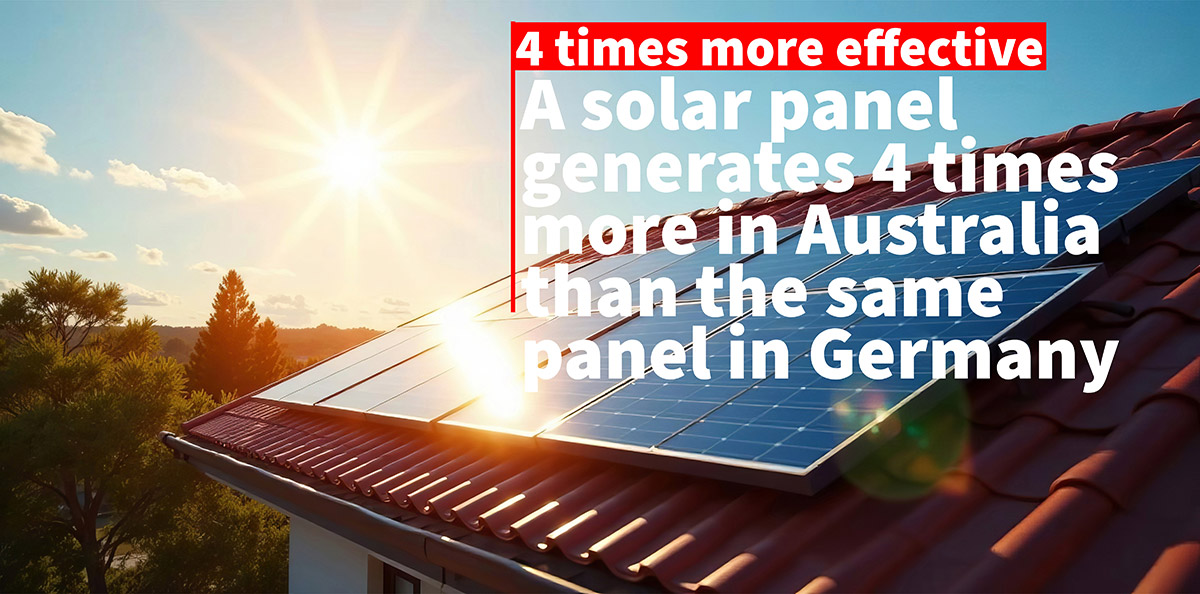
Researched and compiled by Dr Steven Gration - 8 February 2019
Search News Articles...
Recent Articles

Keywords no longer as visible in GSC
- Jan 12 2026
- /
- 173

Unique Web Systems Matter in a World of Sameness
- Dec 26 2025
- /
- 134

Most AI Websites Fail to Rank
- Nov 18 2025
- /
- 365

Sitemap.xml Best Practices
- Oct 14 2025
- /
- 1771

Fake Reviews on Google My Business
- Oct 07 2025
- /
- 587

Sending Emails from Code
- Sep 17 2025
- /
- 658

US Tariff Shifts Undermining eCommerce
- Sep 05 2025
- /
- 819

Small Business Success Formula
- Aug 23 2025
- /
- 610

Do Strong CTAs Help or Hurt Your Website?
- Jul 31 2025
- /
- 804

AI Crawlers vs Search Crawlers
- Jul 04 2025
- /
- 1088
View All News Articles
Categories
A Gold Coast SEO and Web Developer